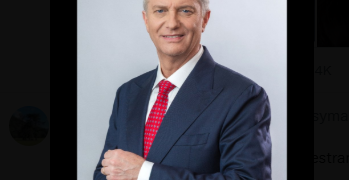Jean Pisani-Ferry
Twenty years ago, January 1, 2002, citizens of 12 European countries began using new euro banknotes and coins. A larger-than-life project – emblematic of a time when European leaders were bold enough to step into the unknown – thus became a tangible reality.
This flawless transition crowned an endeavor that was imagined in the 1970s, designed in the 1980s, and negotiated in the 1990s. Expectations were high: the euro’s advocates hoped that it would deliver economic and financial integration, policy convergence, political amalgamation, and global influence.
Two decades on, it is difficult to avoid feeling disappointed about economic integration. Early assessments of the single currency’s trade impact found that it barely exceeded 2%. Recent research by the European Central Bank puts the effect at perhaps 5%. That is still small, and by itself not worth the effort. Two regions within Europe trade with each other on average six times less if they are not in the same country. Because of history, languages, networks, judicial systems, and reluctance to unify regulations, national borders still matter considerably.
The financial services story is more dramatic. In the first years, banks extended credit abroad, often recklessly, until the euro crisis a decade ago triggered a precipitous retreat behind national borders. Regulators, applying the famous aphorism that banks are global in life, but national in death, told them to stop sharing liquidity with non-national subsidiaries. Fragmentation ensued.
The bold decision to launch a European banking union in June 2012 was a response to this. But implementation has been only partial: whereas eurozone banks are now supervised by the ECB, insolvency cases de facto end up in national hands. Financial integration has recovered somewhat, but momentum is weak.
Although pan-European banks would be able to diversify risk on a broader scale, national governments remain reluctant to relinquish privileged relationships with “their” banking systems.
Policy convergence toward the best performers was meant to result from self-discipline, as well as from fiscal-policy rules and the creation of coordination processes. But, having given up monetary-policy autonomy, many governments rejected further requirements from Brussels. For ten years, credit growth and inflation rates diverged, with few apart from then-ECB President Jean-Claude Trichet worrying much. When the euro crisis eventually erupted, it put northern and southern EU member countries squarely at odds with each other.
Convergence has improved since. Under duress, competitiveness gaps have narrowed. The ECB has helped quell eurozone exit speculation, ensuring that borrowers in all member states have access to similarly priced credit. The response to the COVID-19 shock was remarkably cooperative, with the support of the European Commission and the ECB. And the recovery program launched in summer 2020 broke with long-standing taboos.
There is now a debate as to how much more reform Europe’s macroeconomic policy system needs. Some claim that current arrangements would work fine if governments played by the rules. But as I and a group of economists and lawyers recently argued, today’s changed environment means that policy priorities cannot focus merely on fostering discipline in every member state.
Instead, high debt ratios, low interest rates, the likelihood of recurring turbulence, and secular challenges like climate change call for coordinating monetary and fiscal policies, reforming fiscal rules, and making provisions for jointly tackling shocks. Encouragingly, Italian Prime Minister Mario Draghi and French President Emmanuel Macron endorsed such reforms in a recent commentary.
Political agglomeration, a longstanding European goal, was expected to follow monetary union. Hans Tietmeyer, the late German central banker, liked to quote Nicolas Oresme, a medieval philosopher who said that money belongs to the community rather than to the prince. The euro’s supporters hoped, somewhat confusedly, that a common currency would create a sense of community.
This did not happen directly. During the 1991-92 negotiations on the Maastricht Treaty, governments were supposed to discuss political union alongside monetary union. But many countries, starting with France, rejected federal blueprints. Citizens initially treated euro banknotes as a technicality, not as a sign of belonging. Moreover, the new, mainly central and eastern European member states that joined the EU in the mid-2000s did not share the post-national ethos of the Union’s founding fathers. The euro crisis confirmed that solidarity remained in short supply.
But the euro may still engender a sense of community indirectly. Although fear, not love, has so far prevented countries from leaving it, in some ways the result is the same. Far-right populist politicians such as Marine Le Pen in France and Matteo Salvini in Italy have toned down their criticism of the euro. No major politician wants to bet against it anymore.
The writer, a senior fellow at Brussels-based think tank Bruegel and a senior non-resident fellow at the Peterson Institute for International Economics, holds the Tommaso Padoa-Schioppa chair at the European University Institute. ©Project Syndicate.






































